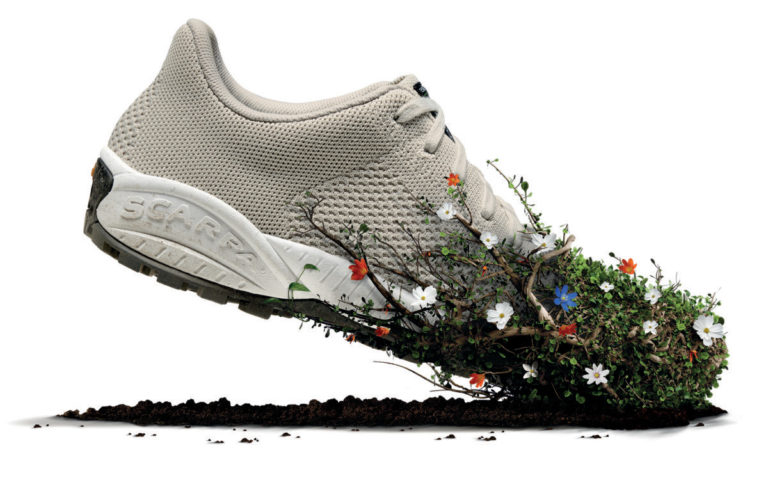Expo Riva Show once again returns to discuss what is an extremely relevant and central theme also for the footwear-manufacturing industry, sustainability. It does so with Alberto Mattiello – business futurist, author, entrepreneur, keynote speaker, and also a member of the Expo Riva Schuh scientific committee – and William Wong – Chairman of the Federation of Hong Kong Brands and Vice President of the Hong Kong Footwear Association.
Obstacles to sustainability
Mr. Wong, who in 2012 was among the co-founders of the ‘Global Footwear Sustainability Summit’ – one of the most important footwear industry events – began by considering the fact that one of the biggest obstacles to a sustainable approach by the footwear industry is still represented today by the costs, which are still too high for many companies and retailers to sustain. Another factor that must be considered is the complexity of the product-shoe, which is created using different materials and components that are not always easy to separate and recycle. In terms of distribution, it is also important to consider aspects like the materials used for the packaging, logistics, and the products that can no longer be sold, which must be either destroyed or destined for corporate purpose.The drive towards a more sustainable model for the production and sales of footwear is in direct contrast to the new purchasing trends of consumers, which is connected above all to the development of e-commerce and characterised by increasingly fast ‘at home’ delivery times, along with the possibility to quickly exchange or return the product for free. According to Wong, the key to reconciling these two opposing factors lies in the ability to ‘educate’ consumers, making them aware of how the protection of the planet is only possible through the many small actions that that each one of us can and must consider. “The policy of many e-tailers to identify the perfect fit by offering the consumer the possibility of ordering two or three different sizes of the same model generates costs and waste, which are the direct result of return policies for undesired products and their packaging. Consumers must be made aware of just how harmful these policies are to the environment. The return policy for online purchases must be tackled by investing in technology and digital applications, because today there now exist efficient systems for identifying the right fit, which capably guide the consumer in purchasing the right pair of shoes” – comments William Wong.
Guidelines towards a sustainable production
The guidelines recommended by Wong for designing, producing, and distributing footwear in a sustainable and efficient way are moving towards a shoe that uses as few materials as possible: “With my collaborators we are studying a shoe that uses just one material for the upper and one for the sole, which would allow us to easily separate the materials used and recycle them at the end of the product’s life”.At the same time, also worth considering is a system that makes use of modern technologies, which would allow production to be outsourced in different countries worldwide in an efficient way. “There would be no need to consider a productive system that is completely based out of just one country. Rather, the idea is that of producing by maximizing efficiency and minimizing costs: so, the upper would be produced in countries with a high availability of low-cost raw materials and a specialized workforce. I’m thinking of countries like Bangladesh, India, Vietnam, or Turkey, where phases with a high-cost impact like the hemming can be done; here, the uppers can be easily stocked and then shipped at a reduced cost to other nearby consumer markets like Europe, where they are then assembled and packed with an automated system for sale on the market. All this however can heavily impact the costs of production, logistics, and shipment, as well as sustainability”.
Artificial intelligence, robotics, digital logistics, and controlling the blockchain can all help contribute to supporting a new outsourced production model in different countries worldwide.
At the base of this transformation towards a more sustainable, digitalized, and automated production model there must however be communication, because the consumer must be aware of the added value generated and willing to pay more for a sustainable product, which respects mankind and the planet.



